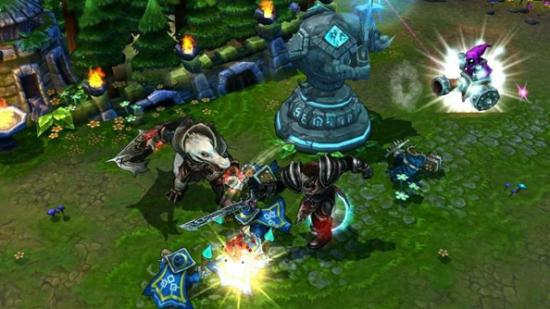You can measure the buzz surrounding Riot Games by looking at the developers its staff have left behind. Greg Street left Blizzard, where he was the face of WoW. Kristoffer Touborg left CCP, where he was lead designer on Eve Online. The very best people in PC development have dropped everything to work on League of Legends.
But there are downsides – and not just watching your player ranking be overtaken by junglers with more free time. According to product manager Jon Pan, Riot’s is a company culture which demands an ability to compromise, asks for charisma, and gobbles up hours. Lots of them.
On the League of Legends subreddit, Pan posted a long missive to future employees, detailing some of the “hard realities” of working at Riot.
The product manager described a “weird culture” where staff worked on “tons of alphas” at any one time – and where progress on a project can crawl to a halt until its team reaches a consensus.
“Sometimes, because of our consensus culture, nothing gets done until someone with great compromising skills steps in and gets to the lowest common denominator,” said Pan. “Then the ball [gets] rolling.”
Part of what makes getting a project done “pretty damn hard” at Riot is the interconnectedness of all things: according to Pan, almost anything staff might be working on has the potential for “tremendous unintended impact on other teams”.
“You have to be cognizant of the potential downstream impact of your decisions,” he said. “Some decisions have unpredictable outcomes because Riot Games is very complex and intertwined company that few people truly understand.”
In that culture, said Pan, employees need to have a “presence” about them to make a difference. Rioters are rarely wallflowers, and respond to staff whose manner commands respect.
“This may be controversial, but I think if you are unable or unwilling to stand out, look energetic, and get your thoughts across in a concise way, it is hard to be heard at Riot,” explained Pan. “Does that mean everyone needs to be an ‘alpha male’ to be heard? No, then it would just be a shouting match.
“This isn’t about physical appearance; it’s about the respect one can command through their demeanor.”
Pan’s final point is perhaps less surprising: that Riot Games “becomes your life”. He rarely takes full weekends off, instead voluntarily devoting extra time to pushing the company mission: to be the most player-focused studio in the world.
Pan’s reasoning? Working for Riot is not a job, but a vocation. Players don’t clock off at five, and so neither do they.
“Personally, I turned down a 9-5 job which paid 25% more to be here,” he explained. “Riot has a mission that I believe in. This isn’t some crap that’s printed in some brochure that we keep in our drawers. I don’t even have a drawer… this shit is for real.
“This is like me saluting the American flag during reveille every morning when I was in the Army. FEELS.”
I believe Pan when he says that Riot “doesn’t force anything on you” – but there’s clearly a shared devotion at Riot that encourages staff to carry on and on – and that the product manager says often leads to “frayed relationships” at home.
Working on LoL is “intellectually and emotionally rewarding and exhausting”, and self-evidently, that’s not for everyone. If any of you lot had the chance to work at Riot, would you consider the potential cost worth it?
If you’re just jumping into League of Legends and want to know what champions to pick, check out ourbest League of Legends champions for beginners guide.
